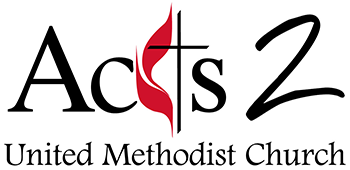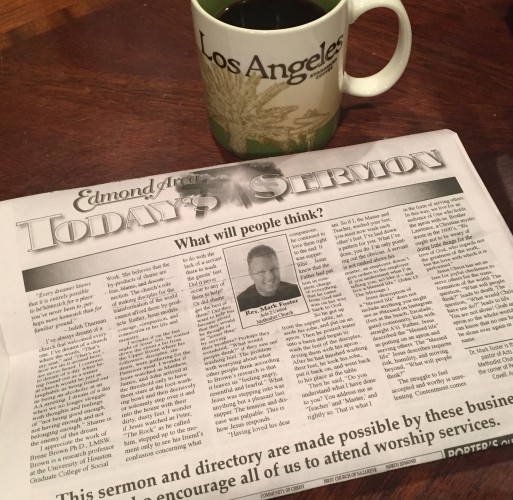I’ve always dreamt of a church that welcomed everyone. I’ve dreamt of a church where the words, “That’s my seat” and “That’s not how we do it around here” are never heard. I continue to dream of a day when being found out as a sinner at church would be just as laughable as being found out as being an alcoholic at an AA meeting. I dream of a day when we no longer struggle with thoughts and feelings of “not being good enough, not having enough and not belonging enough.” Shame is the enemy of this dream.
I appreciate the work of Brene Brown Ph.D., LMSW. Brown is a research professor at the University of Houston Graduate College of Social Work. She believes that the by-products of shame are fear, blame, and disconnection. The church’s role of making disciples for the transformation of the world cannot afford those by-products. Rather, Jesus models courage, compassion, and connection in his life and ministry.
I wonder if on the last night of Jesus’ life, he waited down the street a bit from the Upper Room where his followers, disciples, students, were gathering for the Passover meal. I wonder if Jesus watched as Matthew, James, and John arrived at the threshold only to have them stare at the foot-washing bowl and then decisively or solemnly step over it and into the house with their dirty, dusty feet. I wonder if Jesus watched as Peter, “The Rock” as he called him, stepped up to the moment only to see his friend’s confusion concerning what to do with the lack of a servant there to wash the guests’ feet. Did it never occur to any of them to help? Or did shame get the best of them? Did they want to help but became afraid that they would be thought of as “lesser than” by serving their brothers? Perhaps they wondered, “What would people think?” if they saw me washing feet. The problem with worrying about what other people think according to Brown’s research is that it leaves us “feeling angry, resentful and fearful.” What Jesus was stepping into was anything but a pleasant last supper. The tension and dis-ease was palpable. This is how Jesus responds.
“Having loved his dear companions, he continued to love them right to the end. It was suppertime… Jesus knew that the Father had put him in complete charge of everything, that he came from God and was on his way back to God. So he got up from the supper table, set aside his robe, and put on an apron. Then he poured water into a basin and began to wash the feet of the disciples, drying them with his apron… After he had finished washing their feet, he took his robe, put it back on, and went back to his place at the table.
Then he said, “Do you understand what I have done to you? You address me as ‘Teacher’ and ‘Master,’ and rightly so. That is what I am. So if I, the Master and Teacher, washed your feet, you must now wash each other’s feet. I’ve laid down a pattern for you. What I’ve done, you do. I’m only pointing out the obvious. A servant is not ranked above his master; an employee doesn’t give orders to the employer. If you understand what I’m telling you, act like it – and live a blessed life.” (John 13 The Message.)
Jesus description of a “blessed life” does not include anything you might see as #blessed on Instagram (feet at the beach, Escalade, gated community, kids with straight A’s). Rather, Jesus described the “blessed life” as putting on an apron and serving others. The “blessed life” Jesus describes requires risk, humility, and moving beyond, “What will people think?”
The struggle to feel accepted and worthy is unrelenting. Contentment comes in the form of serving others. In this way, we live for an audience of One who holds the apron with us. Brother Lawrence, a Christian mystic wrote in the 1600’s, “We ought not to be weary of doing little things for the love of God, who regards not the greatness of the work, but the love with which it is performed.”
Jesus Christ has set us free for joyful obedience to serve others for the transformation of the world. The question, “What will people think?” leads to death. The question, “What would Christ have me do?” leads to life. You are not alone! Grab an apron so the whole world can know that no one has to be alone ever again in Jesus’ name.


